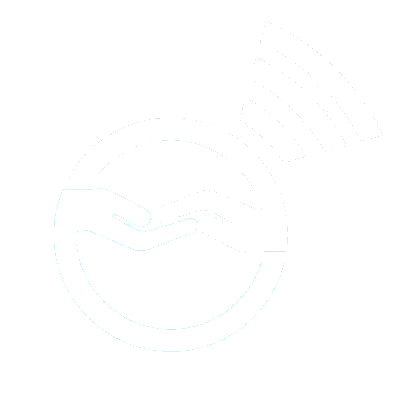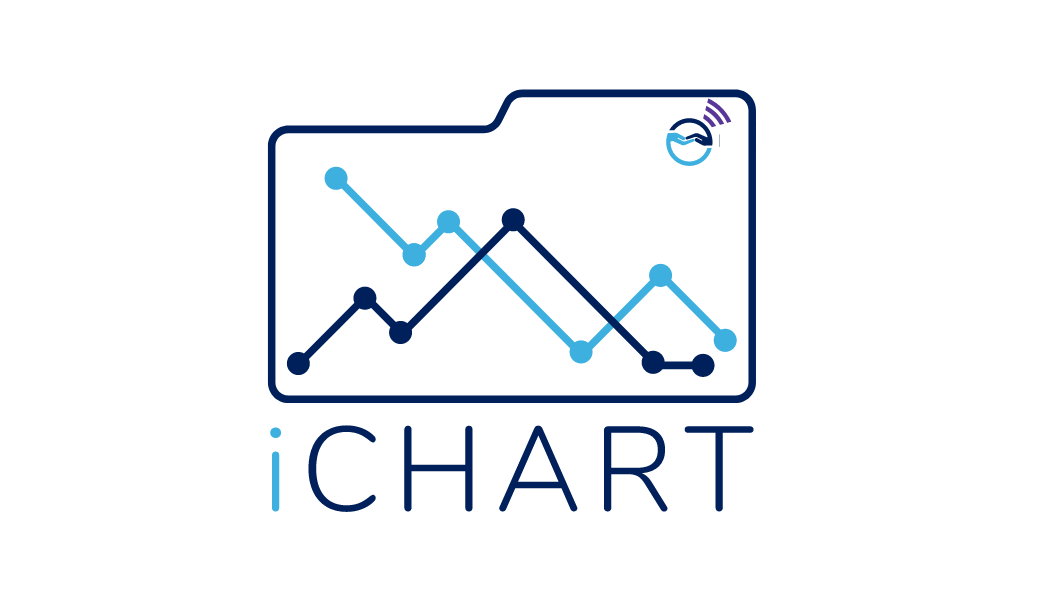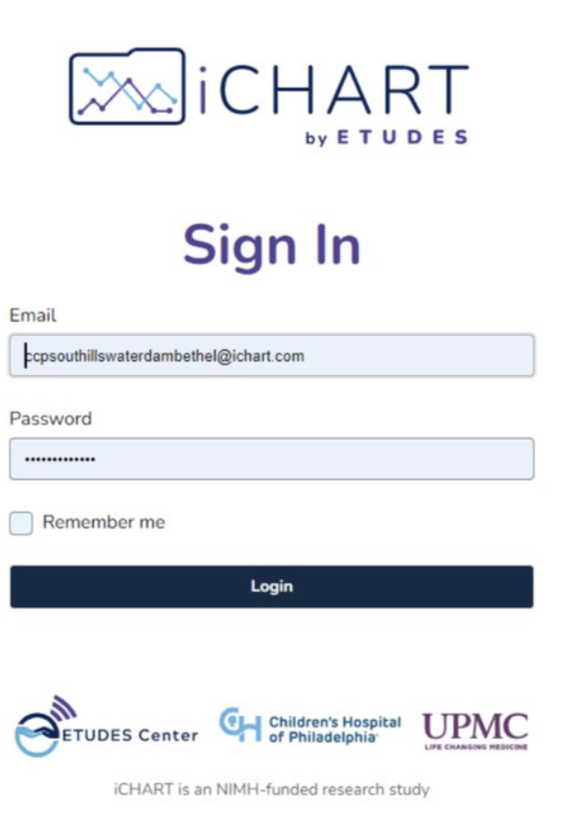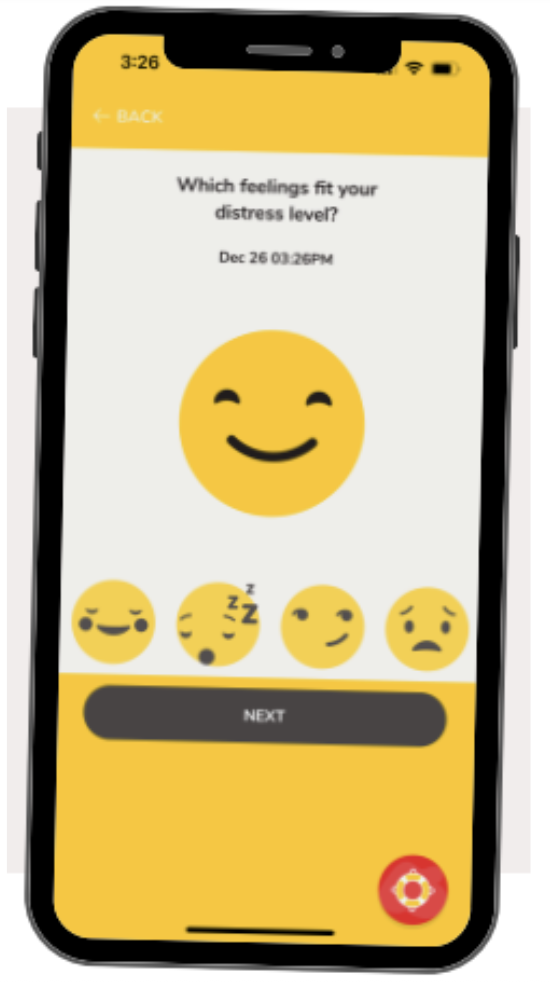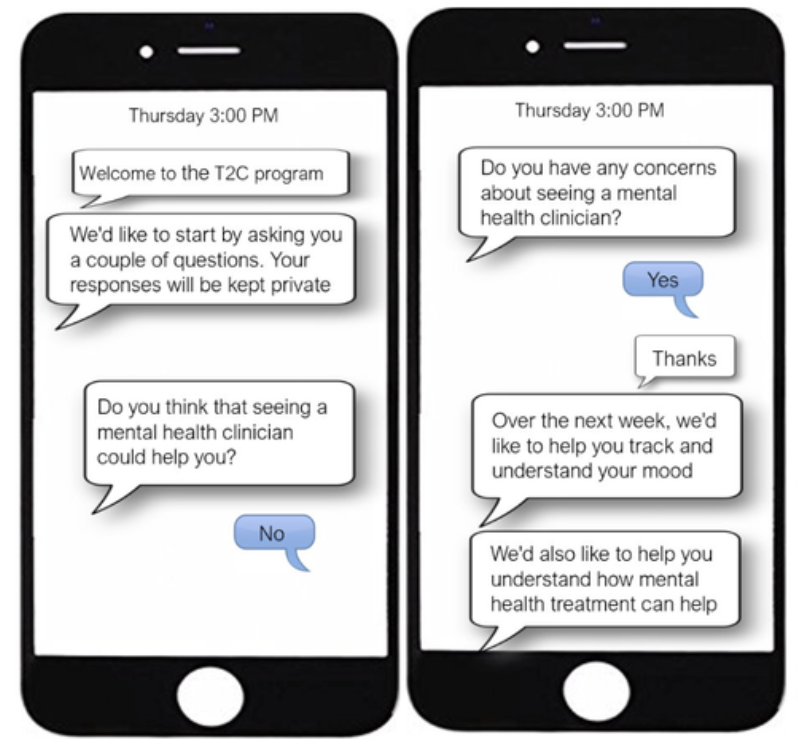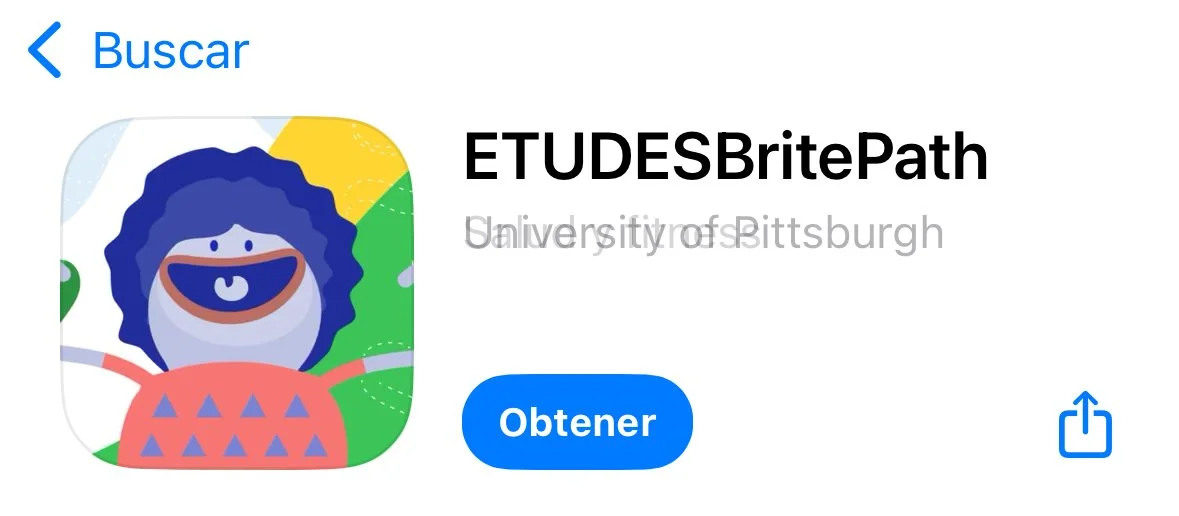integrated Care to Help At-Risk Teens (iCHART)
The iCHART (integrated Care to Help At-Risk Teens) intervention is a randomized control trial involving 900 adolescents (ages 12-18) who are randomly assigned to either the iCHART group or Treatment as Usual (TAU) group. The iCHART intervention is a digital program designed to help reduce depressive symptoms and suicidality in adolescents and support pediatric providers in identifying and managing teens at risk for depression and/or suicidality. It integrates several digital tools to enhance screening, treatment engagement, and safety planning.
Project Background
The iCHART intervention was developed by the University of Pittsburgh in collaboration with UPMC and is part of the broader ETUDES Center, a National Institute of Mental Health-funded initiative aimed at improving suicide prevention and mental health care for adolescents in pediatric primary care settings. Suicide is among the leading causes of death for adolescents and young adults, so this study aims to determine if iCHART can reduce suicide-related events by 50% compared to the TAU group. Researchers are also examining factors such as treatment engagement and the effectiveness of safety planning.
ClinicalTrials.gov ID
FAQs
-
iCHART includes 3 components delivered through your phone:
The BRITE app (which stands for "Brightening the Future of Individuals at Risk for Suicide Through Technology-Enhanced Safety Planning") is a smartphone application designed to help adolescents manage suicidal thoughts and behaviors through personalized coping strategies, daily distress monitoring, and skill practice reminders.
Text2Connect (T2C)is an automated text messaging tool to promote engagement with BRITE when adolescents are distressed or disengaged. Text2Connect reminds teens that they have the BRITE app after 3 days of non-use and suggests coping skills for adolescents to try in times of high distress.
The Enhanced Mental Health Screener is completed separately by both parent and teen and screens for additional comorbidities in the adolescent (i.e., anxiety, mania, substance use), inquiring about treatment preferences, and identifying barriers to treatment. The findings from the EMH Screener compile parent and teen perspectives, providing their PCP with useful information for more personalized referrals and assisting families in planning their next steps in care.
-
BRITE is intended for adolescents (ages 12-18) who are at risk of suicide and who have been randomized, like a flip of a coin, into the iCHART intervention.
-
The BRITE app helps adolescents build self-awareness around distress with daily mood check-ins. Our clinical assessors collaborate with teens on a personalized coping plan and strategies that are embedded in the BRITE app to manage suicidal thoughts. The app includes features intended to encourage daily engagement and will notify participants via Text2Connect to reach out to social supports or crisis hotlines when necessary.
-
One of our aims is to promote treatment engagement between families and providers. After iCHART onboarding, the Enhanced Mental Health screener results and the participant’s safety plan will be shared with their pediatrician. We may also share safety information with the teen’s therapist or psychiatrist, when applicable, but only with Release of Information permission from the parent.
-
We intend every participant to use the app daily for the duration of main study participation (12 months). The participant will not be asked to remove the app after study completion, and they can keep the app on their phone.
Common Issues
-
Search for “ETUDESBritePath” in your phone’s app store and download the one made by the University of Pittsburgh. Check the images above to make sure you’re getting the right app.
-
To open the app, you will need a user ID (UID), password, and pin code. The UID and password are unique to you and something study staff will need to share with you. If you’re not able to find this information, contact the study team.
Your pin code is something you can make up yourself. It can be any 4 digits you’ll remember.
-
There are many reasons this can happen, including if you don’t have the most recent version of the app downloaded from the app store. Check to see if you have the most recent version. Sometimes the app may also have issues if the memory on your phone is limited and may need to be refreshed. Try closing out the app and restarting it. If those quick fixes don’t work, contact the study team, and we’ll help problem-solve what’s happening.
-
Some of the above suggestions from ‘After I go into the app, it starts not working’ may help with getting the app to open. You can also try deleting the app and redownloading it from the app store. If that still doesn’t work, contact the study team to let us know.
-
Images and videos saved on BRITE follow a pathway from where they exist on your phone (e.g., saved in your image library). If there have been changes to where your images are stored (e.g., if you’ve deleted/moved content), BRITE may not be able to find your images/videos. In this case, the best thing to do, is re-upload that content into BRITE.
-
This must be provided by the study team. If you can’t find that information, contact the study team any time who can send it to you.
-
You can reset your pin code on BRITE on the login page, click “Forgot my Pincode.”
-
Once on the BRITE app, go to “My Settings” and then click on “Set Reminders.” When you click “Edit,” you can set either custom reminders or weekly reminders. Weekly reminders are for ongoing weekly reminders, and custom reminders are for one-time reminders. You can set reminders at any time you’d like. We recommend having reminders at least on a daily basis, set at a time you’ll be available to use the app. Think about when you’ll have consistent free time. Avoid times when you may be sleeping, at school, doing homework or activities, eating with your family, or otherwise busy.
If you’re having other problems with BRITE, reach out to the study team any time. We’re happy to help! Contact us at ETUDES@upmc.edu.
Team
-

Stephanie Stepp, PhD
Multiple Principal Investigator
-

Nadine Melhem, PhD
Multiple Principal Investigator
-

Molly Davis, PhD
CHOP Site Principal Investigator
-

David Brent, MD
Co-Investigator
-

Jami Young, PhD
Co-Investigator
-

Candice Biernesser, PhD
Co-Investigator
-

Jamie Zelazny, PhD, MPH, RN
Co-Investigator
-

Oliver Lindhiem, PhD
Co-Investigator
-

Tina Goldstein, PhD
Co-Investigator
-

Casey Monteverde
R01 Coordinator
-

Sara Reagan, CRCC
Clinical Research Coordinator, Children's Hospital of Philadelphia
-

Emily Alexander
Clinical Research Study Lead & Project Manager
-

Karla Joyce, LCSW
Research Operations Coordinator / Clinical Supervisor
-

Amy Anderson, MS, LPC
Methods Coordinator
-

Brandie George-Milford
ETUDES Center Administrator and Project Manager
